Gwyneth Hughes: ‘Period drama is totally out’
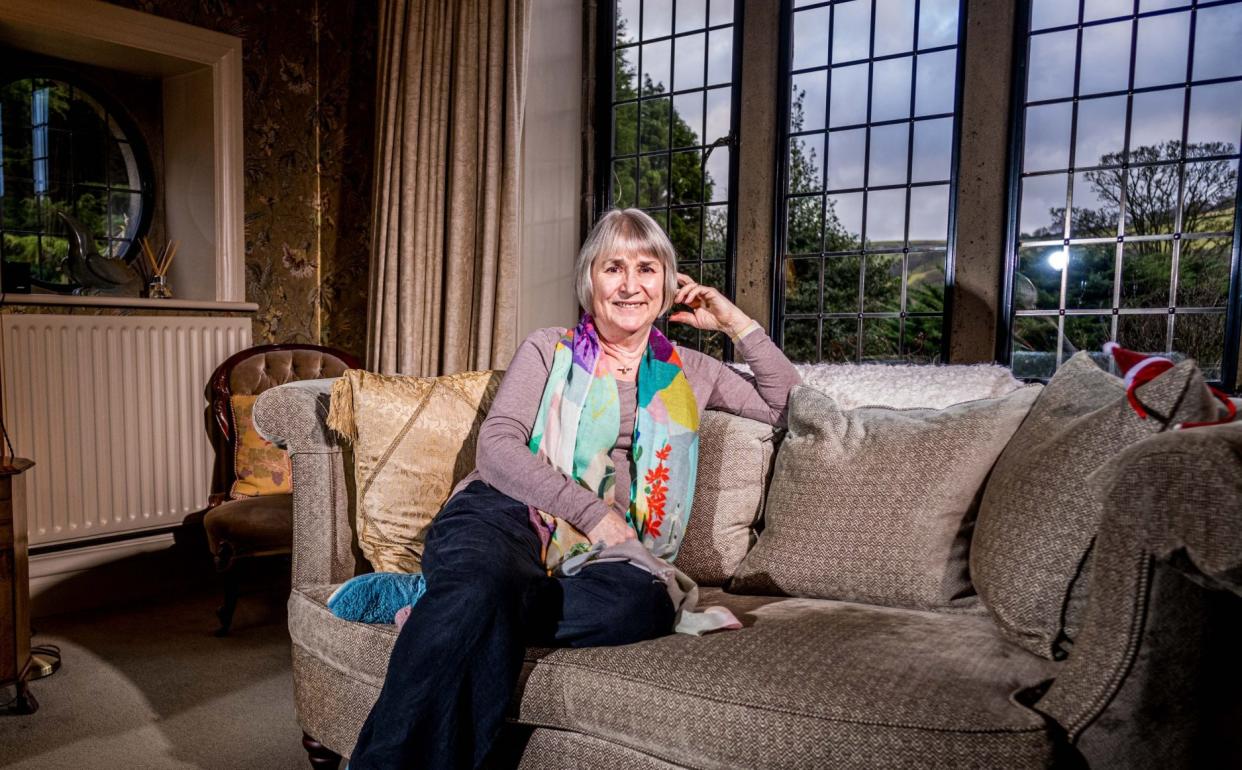
- Oops!Something went wrong.Please try again later.
“I’ve never met that nice Mr Jed Mercurio,” says Gwyneth Hughes, “but I would like to punch his lights out.”
Hughes is talking – and joking – about the time that her adaptation of Vanity Fair launched on ITV. It was 2018, and she had poured heart and soul into putting Thackeray’s novel on screen. “We were so thrilled. We thought we’d done a great job. And it absolutely tanked.”
The BBC had chosen that same Sunday night slot to launch Bodyguard, which became a ratings sensation. “I knew nothing about it,” Hughes says, recalling the first time someone mentioned that she’d be going up against the Keeley Hawes thriller. “Then I watched the first episode and thought, ‘Ohh…’”
Vanity Fair’s failure was “very disappointing and upsetting”, she says. Luckily for Mercurio, Hughes won’t be throwing any punches if they do cross paths one day. She is lovely and friendly, and extremely modest. Unlike her more attention-hungry rivals, she tends to go under the radar, quietly getting on with her work as one of our most accomplished drama writers. Where some specialise in period dramas and others in modern thrillers, Hughes can turn her hand to both: adapting the classics (Vanity Fair, Tom Jones, The Mystery of Edwin Drood) and true-life stories such as Honour, based on the investigation into the honour killing of Banaz Mahmod, and Cherished, in which Sarah Lancashire played Angela Cannings, the mother wrongfully convicted of killing her two babies.
Hughes’ latest labour of love is Mr Bates vs the Post Office, documenting a scandal that will go down in history as one of Britain’s greatest miscarriages of justice. Hundreds of innocent sub-postmasters and sub-postmistresses were wrongly accused of theft, fraud and false accounting. Some went to prison; many were financially ruined. All had their good name destroyed. In fact, the accounting mistakes were made by the Post Office’s faulty computer system.
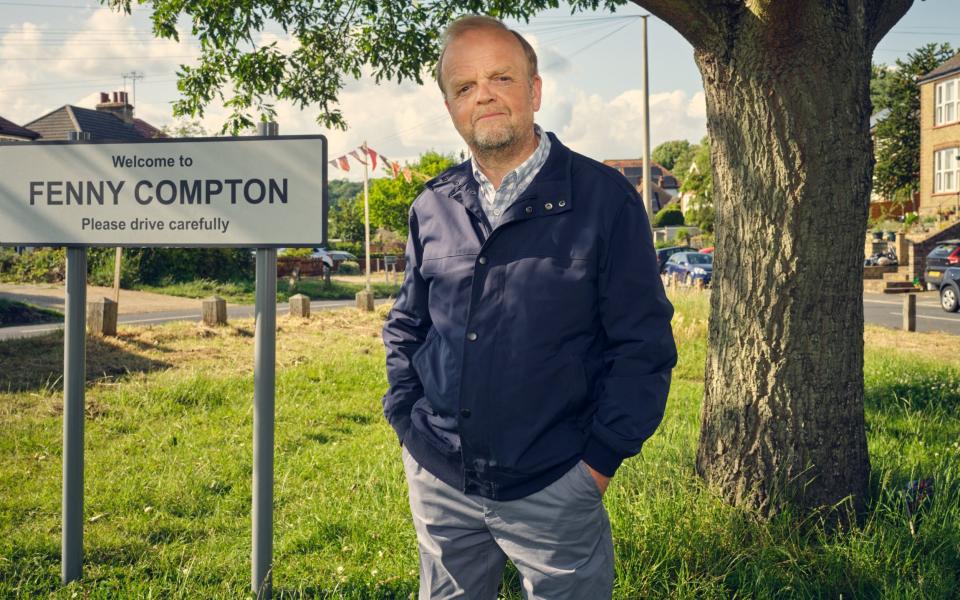
It is a tale of corporate callousness. The drama has a fine cast, led by Toby Jones as Alan Bates, a sub-postmaster from Llandudno who led a 20-year campaign for justice. Hughes is pleased with the casting, which also includes Monica Dolan, Will Mellor and Julie Hesmondhalgh. “It’s very difficult to find actors who can actually play really ordinary people,” Hughes says. It is this ordinariness, she argues, that meant the scandal was under-reported for a very long time.
The real-life victims are “not metropolitan, they’re not young; they’re from a range of ethnic backgrounds but the Asian and African people involved are as British as they come and they all bought into an idea of Britain, an ideal of England, being small shopkeepers. They’re really deeply small ‘c’ conservative people, and they’re not fashionable.”
ITV, to its credit, snapped up the story and committed to telling it over four episodes. But Hughes says that seeing older people on screen these days is a rarity as broadcasters chase a young audience. “And they’re all doing something else!” she says of teens and 20-somethings. “The people sitting at home wanting to watch serious drama are older people and we don’t cater for them. Everybody complains that they can’t hear the dialogue, there’s too much loud music, they can’t see because it’s too dark – and I’ve reached the age bracket where I complain about that stuff.”
As part of her research, Hughes, who turns 70 in March, travelled around the country meeting the real subjects in their homes. “And they were relieved to see that I’m this age. People feel very judged by young people, who seem to have gone off on some funny planet where they think different things. Somehow I made a really immediate connection with all of them and I don’t think that’s because I’m charming and marvellous, I think it was to do with the grey hair.”
Hughes, the daughter of a Welsh police constable and an NHS clerk, went to school in Dartford. After studying for a Russian degree which made her fall in love with Tolstoy – “I was so hacked off when Andrew [Davies] got to do War and Peace – he got my job!” she laughs – she worked as a reporter for the Sheffield Morning Telegraph and a documentary-maker for Yorkshire Television. In her 30s, she moved into drama as a writer for The Bill but was never tempted to base herself in London; with no need to go into an office, she moved to a house near Huddersfield that was “1,000 feet up and in a constant wuthering gale”, and for the past 15 years has lived close to Skipton in North Yorkshire.
Remaining out of the media bubble and researching the lives of ordinary folk means that she can view the TV industry from an outsider’s perspective. “Telly’s made by metropolitan people, Londoners, who are all young and living in a magically diverse and amazing city. They underestimate what the rest of the country is like.”
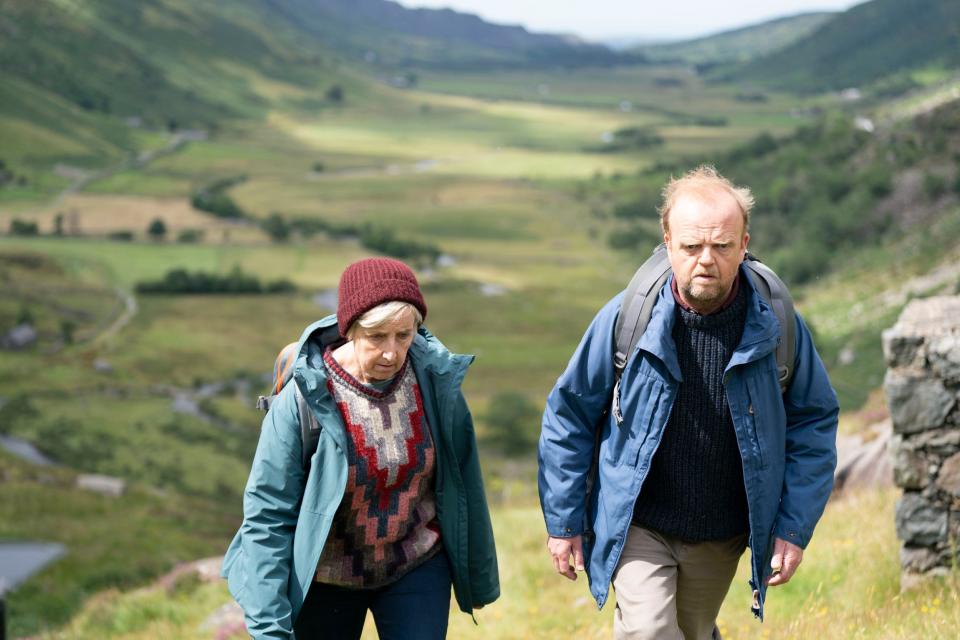
Hughes lives with her second husband, Chris Brown. He is a competitive swimmer in over-70s races, and the fact that he gets up at twenty-to-five every morning to head for the training pool means they’re tucked up in bed each night by 9pm. Consequently, Hughes barely watches TV. “I’m rather embarrassed by it,” she confides. “I live in absolute fear of turning up to pitch an idea and them going, ‘But that was on yesterday.’”
She does try to catch the odd period drama, though, and was unimpressed by the Steven Knight adaptation of Great Expectations in which the plot was rewritten to include, among other horrors, Miss Havisham as a gun-toting opium addict.
“I started watching it and I just thought, ‘I’m sorry…’ You’re using Charles Dickens’ name to sell a production. I mean, people can do what they like, and I hope people liked it… but when I’ve done [period dramas] I’ve really felt Dickens or whoever in the room,” says Hughes. Her firm message to anyone else who attempts a reboot: “What’s wrong with you? Do Dickens. Just do him.”
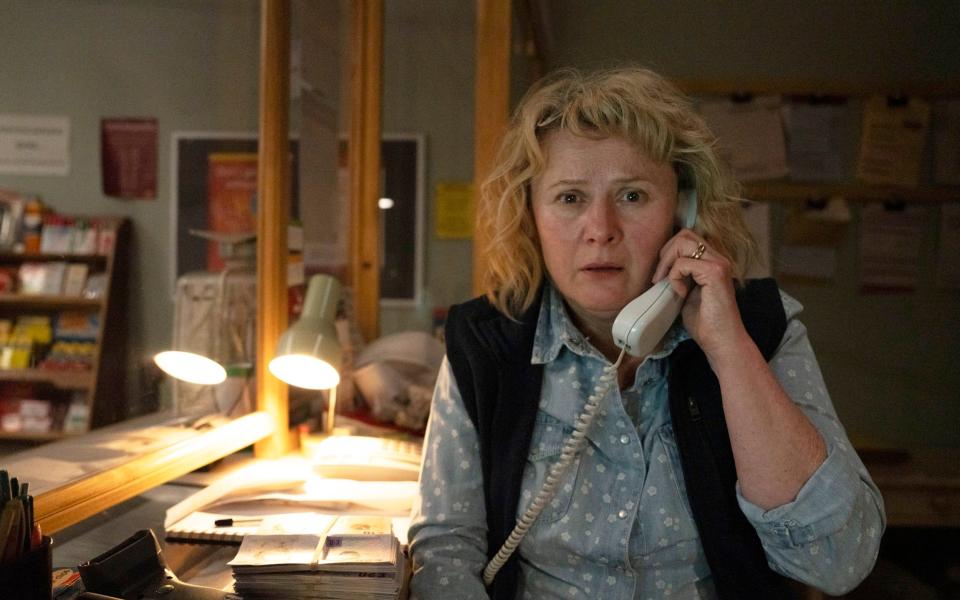
Like everyone else on the planet, she adored Andrew Davies’s wet-shirted Pride and Prejudice, which set a new bar for period dramas way back in 1995. But she says now: “Period is totally out. Nobody is doing period in spite of the massive success of Bridgerton. It’s my favourite thing, but getting the opportunity to do them is few and far between.
“Pride and Prejudice launched 20 successful years but then people lose interest, and fashions move on, and now you really can’t get a classic adaptation made for love nor money.” Tom Jones was shown here on ITVX but it was financed by a US broadcaster – American audiences still hanker for corsets and crinolines. She would love to adapt Anna Karenina, or something by Thomas Hardy, and her real dream is to do National Velvet but it is apparently too hard to wrestle the rights from MGM.
She hopes that Mr Bates vs The Post Office will find an audience. “From looking at the schedule it seems that all anybody wants to watch is eviscerated women, but that can’t be the case. It’s a cliche that there are a thousand channels and nothing to watch, but if you’re surfing you will find a lot of murders,” says Hughes. Despite the seriousness of the subject matter, she has tried to inject some humour “because they’re British people and they’re still funny – that residual humour has survived in them. And I wanted to show them the way they are.”
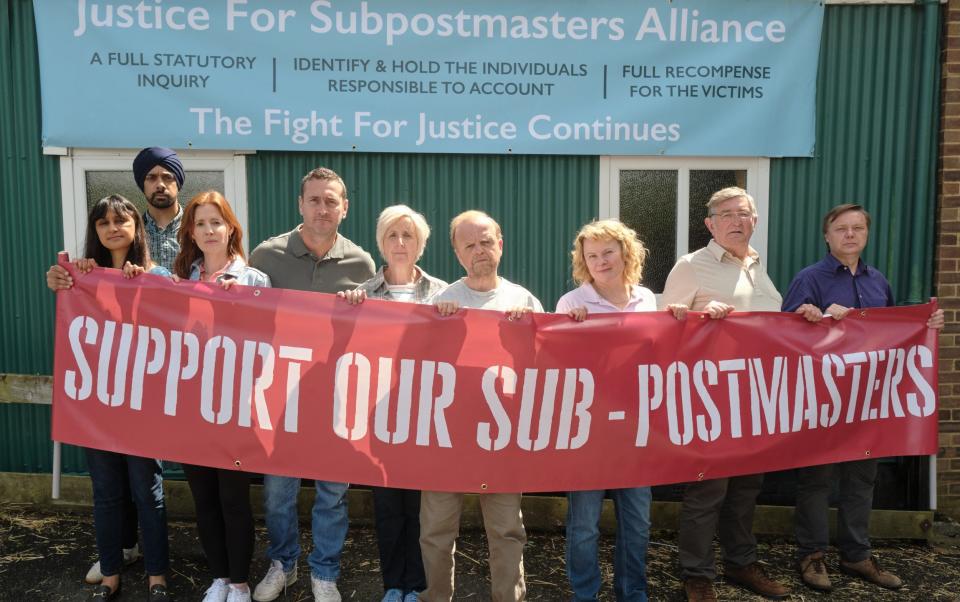
The Government announced in September that those wrongfully convicted would be offered £600,000 each in compensation. A large sum, but it can’t make up for the damage caused to these people and their families, and the toll taken by years of fighting to clear their names. When one character says in the first episode: “We’ve just got to trust in the British legal system and everything will be all right,” it sums up how so many were betrayed.
Hughes must dash off from our lunch in Kings Cross to catch a train back up North. When I ask what she’s doing next, the answer is: “Going to bed.” She’s taking a break; getting Mr Bates to its launch has involved years of work, and Hughes cares deeply about the real people involved. “We’ve become friends,” she explains. Often, the subjects of real-life crimes take a great deal of persuading to be involved in a TV series. In this case, Hughes says they were “falling out of the trees” because they want their story to be heard. “Like all the best true stories, it’s genuinely unbelievable that this could happen. And, still, a lot of people don’t know about it. But they’re going to know about it now, because the fantastic thing about doing a drama is that people take notice.”
‘Mr Bates vs the Post Office’ is on ITV1 and ITVX at 9pm on New Year’s Day

